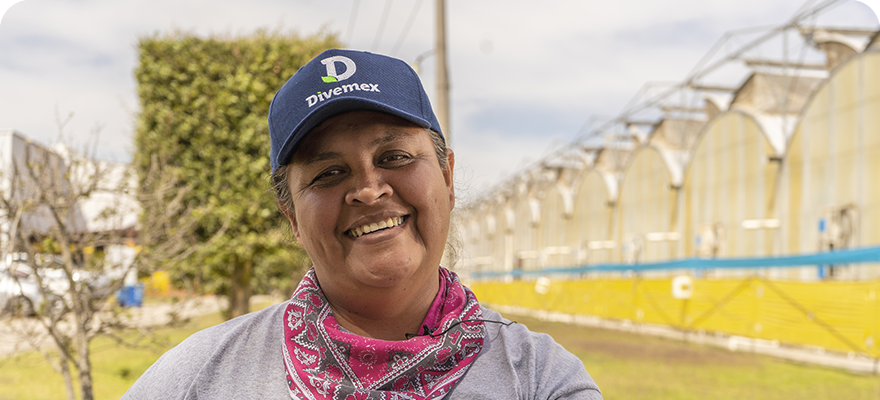María de Jesús Meza. With all of my heart I want to thank Divemex and Fair Trade program for an eye surgery which has changed my life.
What is Strabism? From Wikipedia, the free encyclopedia
Strabismus is a condition in which the eyes do not properly align with each other when looking at an object. The eye that is focused on an object can alternate. The condition may be present occasionally or constantly. If present during a large part of childhood, it may result in amblyopia or lazy eyes and loss of depth perception. If onset is during adulthood, it is more likely to result in double vision.
Strabismus can occur due to muscle dysfunction, farsightedness, problems in the brain, trauma or infections. Risk factors include premature birth, cerebral palsy and a family history of the condition. Types include esotropia, where the eyes are crossed (“cross eyed”); exotropia, where the eyes diverge (“lazy eyed” or “wall eyed”); and hypertropia or hypotropia where they are vertically misaligned.They can also be classified by whether the problem is present in all directions a person looks (comitant) or varies by direction (incomitant). Diagnosis may be made by observing the light reflecting from the person’s eyes and finding that it is not centered on the pupil. This is known as the Hirschberg reflex. Another condition that produces similar symptoms is a cranial nerve disease.
Treatment depends on the type of strabismus and the underlying cause. This may include the use of glasses and possibly surgery. Some types benefit from early surgery. Strabismus occurs in about 2% of children. The term is from the Greek strabismós, meaning “to squint”. Other terms for the condition include “squint” and “cast of the eye”. “Wall-eye” has been used when the eyes turn away from each other.


